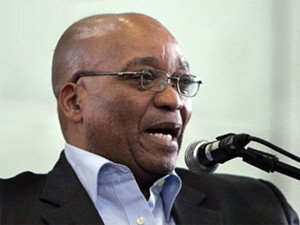
In what was a further emphasis of government's divergent approach to its new ministries, the Presidency yesterday announced the Department of Communications and newly-formed Department of Telecommunications and Postal Services (DTPS) will work under different administrative clusters.
According to the Presidency, the new ministerial clusters are geared towards "improving coordination within government and enhancing the delivery of services, aiming for an integrated governance approach in planning and decision-making at national and provincial levels".
Under the new system, the DTPS will fall under the economic sectors, employment and infrastructure development cluster - a collective which also includes the departments of science and technology, finance and energy. The DTPS is also grouped in the international cooperation, trade and security cluster.
The DOC, however, was placed in the governance and administration cluster, alongside the departments of cooperative governance and traditional affairs, public service and administration, home affairs, and finance.
Confusing move
President Jacob Zuma announced the split of the former communications ministry on 25 May, with former spy boss Siyabonga Cwele leading the DTPS and Faith Muthambi at the helm of the DOC. The latter will take under its wing the Independent Communications Authority of SA, the SA Broadcasting Corporation, Government Communications and Information System, Brand SA, and the Media Development and Diversity Agency.
The move baffled ICT industry commentators, with many questioning the separation of entities in a technologically converged sector.
ICT veteran Adrian Schofield and Democratic Alliance shadow minister of communications Marian Shinn noted the DOC in particular was concerned with controlling what citizens see and hear.
Muthambi said this week that the new department will not be an agent of propaganda for the state, but will aim to foster a good relationship with the media and get "the good stories that are not being told" out there.
She said accessibility of government information would be a priority and the department would face challenges with simplifying of communication geared towards reaching the nation.
Share